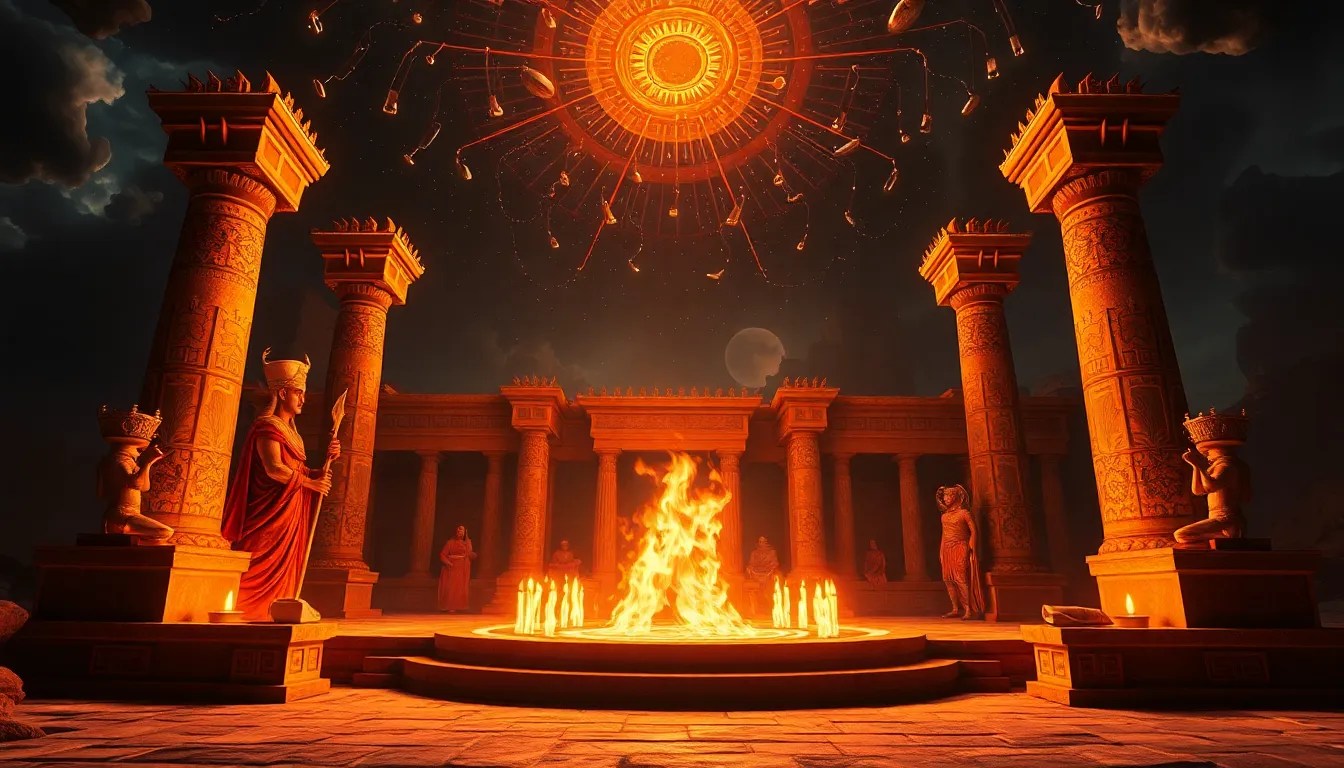The Influence of Babylonian Oracles on Ancient Kings
I. Introduction
In the rich tapestry of Babylonian culture, oracles played a pivotal role. Defined as sacred messages or prophecies believed to originate from the divine, oracles served as a vital means of communication between the gods and the earthly rulers of Mesopotamia. Kings relied on these mystical insights to guide their decision-making processes, ensuring their actions aligned with divine will and favor.
This article explores the significance of oracles in the governance of ancient Babylonian kings, examining how these divine consultations shaped political, military, and social landscapes.
II. Historical Context of Babylonian Oracles
To understand the influence of oracles, one must first grasp the historical context of Babylonian society. Babylon was a central hub of civilization in ancient Mesopotamia, characterized by a complex social structure and a pantheon of gods. Governance was deeply intertwined with religion, as kings were often viewed as intermediaries between the divine and the people.
Religion played a foundational role in the everyday lives of Babylonians, with rituals, sacrifices, and divination practices forming a core part of their culture. Divination was seen not merely as superstition but as an essential tool for understanding the will of the gods.
III. Types of Oracles Used by Kings
The Babylonian kings employed various types of oracles to seek guidance from the divine. Here are some key methods:
- Urim and Thummim: A priestly divination method involving sacred lots that provided yes or no answers to questions posed by the king.
- Dream Interpretation: Kings often sought insights from their dreams, which were believed to be messages from the gods, revealing truths about the future or divine directives.
- Extispicy: This involved examining the entrails of sacrificed animals, particularly the liver, to discern omens and make predictions about the future.
IV. Case Studies of Kings and Their Oracles
The influence of oracles can be illustrated through notable kings in Babylonian history:
- Hammurabi: One of the most famous Babylonian kings, Hammurabi is renowned for his code of laws. He claimed divine sanction for his laws, stating they were inspired by the god Marduk, which legitimized his authority.
- Nebuchadnezzar II: This king is well-known for his monumental building projects and military conquests. He frequently consulted dream interpreters, and significant decisions were influenced by the interpretations of his dreams, which he believed foretold his destiny.
- Lesser-Known Kings: Other kings also relied on oracles to make decisions, such as during wars or diplomatic engagements, often seeking divine approval for their actions.
V. The Process of Consulting Oracles
Consulting oracles was a formalized process involving various rituals and ceremonies. The steps typically included:
- Preparation: The king would prepare offerings to the gods, which could include food, incense, or animals for sacrifice.
- Rituals: Specific rituals were performed by priests to invoke the presence of the divine and seek guidance.
- Interpretation: Priests and diviners played a crucial role in interpreting the signs, using their knowledge of omens, symbols, and sacred texts to provide answers to the king’s inquiries.
VI. The Political Implications of Oracle Consultations
The ramifications of consulting oracles extended beyond mere guidance; they held significant political implications:
- Legitimization of Royal Power: By claiming divine endorsement through oracle consultations, kings could strengthen their legitimacy and authority. This divine backing was essential for maintaining control over their subjects.
- Impact on Warfare and Diplomacy: Decisions regarding war and peace were often influenced by oracle interpretations, as kings sought divine favor before engaging in military campaigns or negotiating treaties.
VII. Decline of Oracle Influence and Its Consequences
Despite their importance, the influence of oracles began to wane over time due to several factors:
- Changing Beliefs: As societies evolved, the rise of rational thought and scientific explanations led to skepticism regarding divine signs.
- Political Changes: The emergence of new powers and changes in governance structures diminished the reliance on oracles for decision-making.
This decline had significant consequences for the governance of Babylonian society, as rulers began to seek alternative methods of leadership and decision-making that did not rely on divine intervention.
VIII. Conclusion
In summary, Babylonian oracles played a crucial role in shaping the decisions and policies of ancient kings. Their influence can be seen across various aspects of governance, from legitimizing royal authority to guiding military strategies. Despite their eventual decline, the legacy of oracles remains a testament to the profound connection between religion and governance in ancient Mesopotamia.
This exploration of Babylonian oracles highlights the complexities of ancient belief systems and their lasting impact on the societies they helped to govern.



